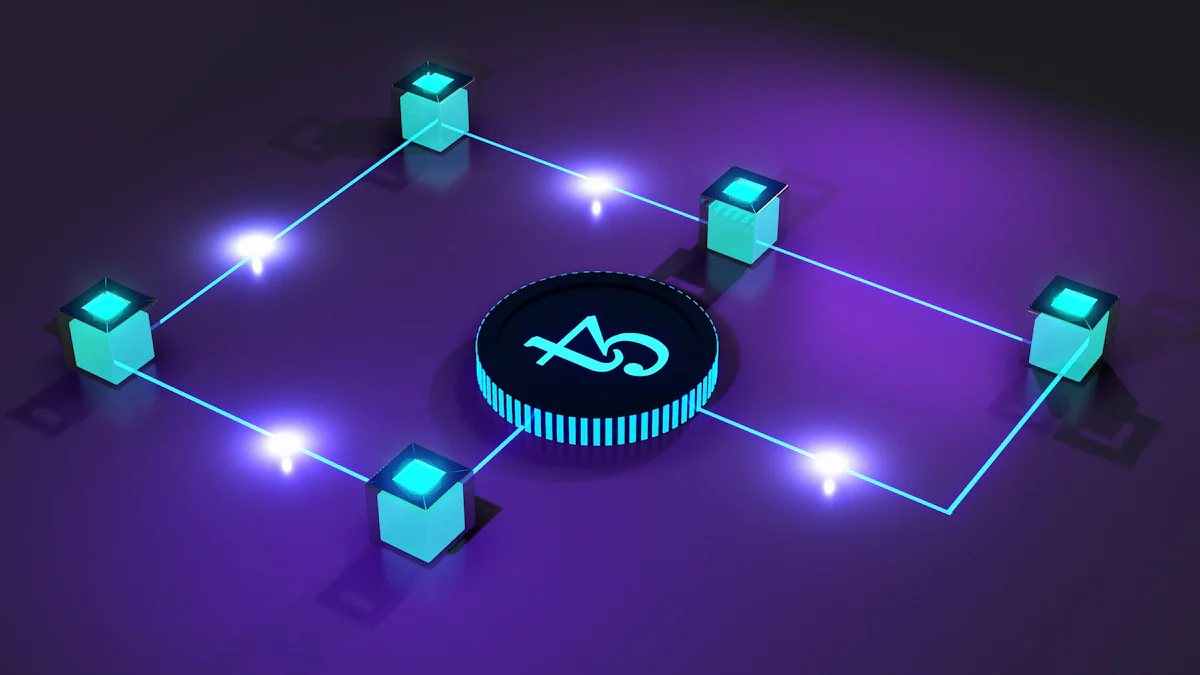2024: Understanding Blockchain Technology: Decentralization and Nodes Explained

Understanding Blockchain Technology
Blockchain technology, also known as distributed ledger technology, is a revolutionary and decentralized system that ensures the secure and transparent exchange of digital assets. This innovative technology has the potential to transform various industries by providing a trustworthy platform for transactions and data management. With its decentralized nature, blockchain technology offers a new paradigm for conducting secure and efficient transactions without the need for intermediaries. As a result, it has garnered significant attention for its potential to drive innovation across diverse sectors.
Trends and Investors in Blockchain
Rising Trends in Blockchain
The finance and banking sectors are witnessing an increased adoption of blockchain technology, leveraging its decentralized and secure framework to streamline transactions and data management. This rising trend reflects the growing recognition of the potential for blockchain to revolutionize traditional financial systems by enhancing security and transparency.
Furthermore, there is a noticeable surge in interest in blockchain-based cryptocurrencies and digital assets. As more individuals and organizations recognize the benefits of decentralized digital currencies, the demand for blockchain innovation continues to grow, paving the way for a new era of financial transactions.
Investors' Impact on Blockchain
Venture capital investments play a pivotal role in fostering the growth of blockchain startups, providing crucial financial support for research, development, and implementation of cutting-edge blockchain solutions. This influx of investment capital fuels the ongoing evolution of blockchain technology and its applications across diverse industries.
Additionally, institutional investors are actively shaping the landscape of the blockchain industry through their strategic involvement. Their participation not only validates the potential of blockchain technology but also contributes to its mainstream integration by fostering partnerships and driving large-scale adoption.
Significance of Decentralization
Decentralization in Blockchain
Blockchain technology's core principle of decentralization plays a pivotal role in ensuring enhanced security and transparency across digital transactions. By distributing the control and management of data across a network of nodes, blockchain mitigates the risks associated with centralized systems, where a single point of failure can compromise the entire network. This decentralized approach not only safeguards against potential security breaches but also fosters a more transparent and trustworthy ecosystem for conducting transactions.
Decentralization Impact on Industries
The concept of decentralization has the potential to disrupt traditional financial systems by offering an alternative framework for secure and efficient transactions. Moreover, decentralized governance models are reshaping organizational structures by promoting more inclusive decision-making processes and reducing reliance on centralized authorities. As industries embrace decentralized systems, they are poised to experience transformative changes in their operational frameworks, paving the way for greater efficiency and transparency.
Exploring Blockchain Nodes
Blockchain nodes are integral components of the blockchain network, playing a crucial role in maintaining the integrity and security of the system. These nodes serve as individual computers or servers that are interconnected within the blockchain network, collectively working to validate and propagate transactions across the network.
Role of Nodes in Blockchain
In the blockchain network, nodes perform essential functions such as transaction validation and propagation. When a new transaction occurs, nodes verify its authenticity and accuracy before adding it to a block. Once validated, these transactions are then propagated across the entire network, ensuring that all nodes have consistent and up-to-date information about the state of the blockchain.
Types of Blockchain Nodes
There are primarily two types of blockchain nodes: full nodes and light nodes. Full nodes play a critical role in maintaining the entire blockchain by storing a complete copy of the blockchain's transaction history. On the other hand, light nodes operate more efficiently by only verifying specific transactions without storing the entire blockchain history. Despite their differences, both full nodes and light nodes contribute to the overall functionality and security of the blockchain network.
Summary of Blockchain Technology
Blockchain technology presents a decentralized and secure framework for conducting transactions, leveraging the concept of distributed ledger technology. This innovative approach ensures transparency and trust in digital exchanges, paving the way for blockchain innovation across various industries. The role of blockchain nodes is instrumental in maintaining the integrity and security of the network, contributing to the seamless functioning of decentralized transactions. As blockchain technology continues to evolve, it is poised to drive significant innovation and transformation across diverse sectors.
Blockchain Innovation: Blockchain technology offers a revolutionary approach to decentralized and secure transactions, driving innovation in various industries.
